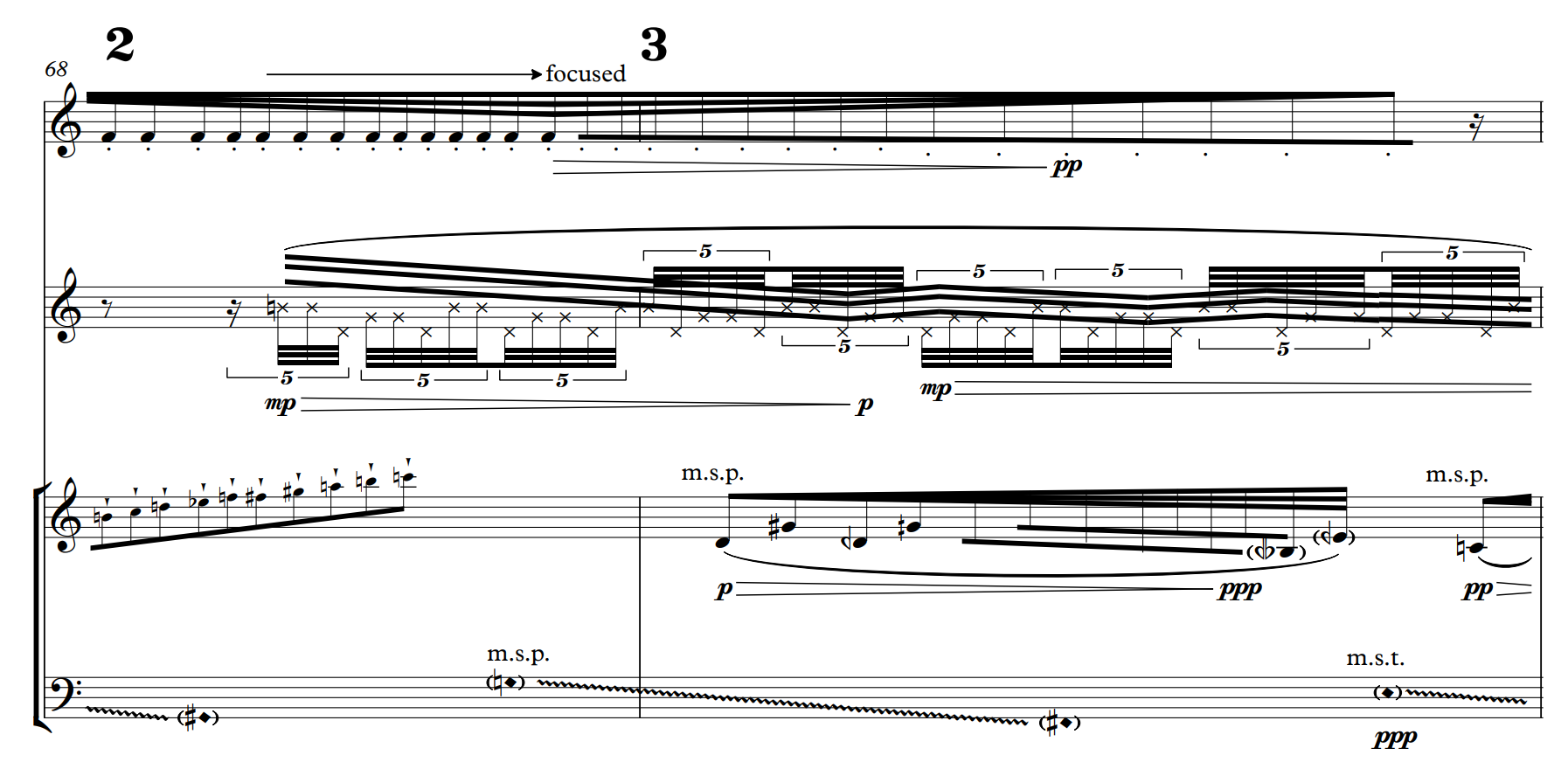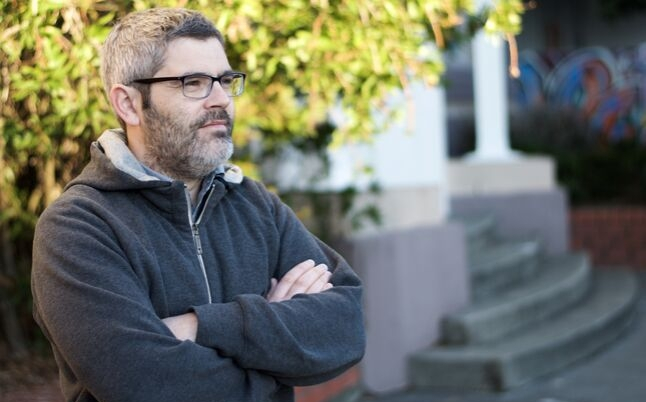'ogee' performed by Justine Cormack (violin), with the New Zealand Symphony Orchestra, conducted by Hamish McKeich.
You can watch a video interview with Chris here.
Could you tell us a bit about ‘ogee’?
'ogee' was written in the first of two years I had as Mozart Fellow at the University of Otago - in 2008. I had the time and absence of financial pressure as Mozart Fellow to compose large, uncommissioned works for speculative opportunities. At the time (it has since been discontinued) the composition competition attached to the Queen Elisabeth Competition in Belgium seemed a great thing to pursue and the 2008 edition asked for a violin concerto. So ogee was designed for the instrumentation and duration specified by that competition. Further to that, I was taking into account that the violinists in the final would have limited time to learn the winning work, so I figured that I should tailor the solo part to that practical constraint. I was also second-guessing the kind of style or approach that might be successful in the competition - possibly this would be less edgy than the music I would have ideally liked to have written at this time. This was clearly an artistic compromise, but one not limited to writing for a competition - it exists in all kinds of commissioned scenarios as well.
The piece emerged as the most, for want of a better word, classical music I've ever written. There's a contrasting interplay of what are essentially first and second subjects (jagged and fast versus sighing and stretched), old fashioned motivic development, orchestral interjections, an easily detected rotation of ideas, a cadenza and coda. It works well enough without composer or medium laying down any particular challenges. There were years-long gaps between initial composition (2008), the NZSO/Justine Cormack recording (2015) and finally hearing that recording (2019). It's really interesting to me how my opinion of the piece has changed over that time. I was perhaps a little disappointed by the compromises made when I sent it off to Belgium, then must have revisited it and decided it deserved being heard when I submitted it for the Composer Sessions. Then elated to hear Justine and the orchestra perform it so well. Then intervening regression to that place of dismissiveness and doubt and, finally, on hearing the recording, contentment and reconciliation. This journey probably says a lot about the gnawing doubts and questions composers have: is my music relevant? - is it mindful of zeitgeist (whatever that is)? - does it honour the artform? I know composers who have ended their relationships with certain pieces of theirs that haven't answered these questions adequately, removing them from official oeuvre listings; I hold on to mine out of a (misguided?) sense of archival duty and because my overall output is so meagre.
And then the piece becomes a SOUNZ Contemporary finalist and I'm confronted by the possibility that others have found it musically worthy. Added to this the nature of the works of Michael and Chris: violin concerti of such adventure and integrity. I'm left humbled and confused!
 'ogee' bar 1-4, solo part.
'ogee' bar 1-4, solo part.
When did you decide on the title? Was it pre-compositional, or did it reveal itself while you were writing?
As with most of my titles, this was settled on after the work was completed. While searching for a title I noticed a similarity between the ogee profile and the shape of part of the first subject fragment - a down-up with a few catches. So the music was not consciously modeled after the shape, a programme being overlaid after the fact. I'm aware of the disingenuousness of this, but I'm also aware of the need for an extra-musical programme note. This is an issue I have struggled with throughout my composing life.
It has been ten years since you wrote ‘ogee’. Looking back now, how do you feel about the piece? If you were approaching the same material now, what would you do differently?
For a long time ogee lived in the shadow of the work I composed for the Queen Elisabeth competition in the following edition, a piano concerto called sing songs self. In part, sing songs self was a reaction to the work that won the 2008 QE competition, a violin concerto called 'Agens' by Korean composer Cho Eun-hwa. I was blown away by this piece, which I clearly remember watching on YouTube in Dunedin. It was without stylistic restraint, a thorough-going modernist statement that had none of the shackles I had imposed on 'ogee'. The violinists I saw playing 'Agens' were crushing their performances - they were clearly capable of learning a work of great complexity with very little lead-in. So 'sing songs self' was me (2009 me) going all out, not worrying about perceived limitations of the competition framework.
The odd thing is that when I listen to both works now, 'ogee' (at least from the perspective of the solo part) sounds properly difficult and, while not breaking new ground, it works formally and has some really nice moments. In my mind it has now emerged from the shadow of sing songs self.
 'cloud transcription', excerpt.
'cloud transcription', excerpt.
How has your style and approach to composing changed since that time?
I've not written orchestral music since 'sing songs self' so I'm not entirely sure where I'm at with that medium. However, my approach to chamber music has changed considerably through the writing of a series of works ('cloud transcription', 'double duo', 'sundry good' and 'tag (and release)'). I've moved away from the software I was closely wedded to and now sketch extensively by hand, only committing the music to computer in chunks as the piece progresses. I have enough faith in my technique now that I can trust my feeling for a piece without the need for checking with simulated playback - I feel liberated by this. I now use a lot of non-standard, quite graphical notations to indicate the shapes of gestures without being note-specific. I've developed a method for overcoming the need for a conductor by having a particular instrument take the lead (reading conventional notation) while the others insert gestures according to the progress of this temporary quasi conductor.
In terms of style, I'm still an adherent of the modernist project, whatever that is in 2019.
The full score of 'ogee' can be obtained from SOUNZ here.
SOUNZ blog is designed for expressive discussion and debate amongst the arts and broader community. This is intended to be a safe space so please remember to keep comments respectful and avoid personal attacks, criticisms of specific organisations and defamatory language. Comments are moderated to ensure that they comply with SOUNZ’s Community guidelines.
